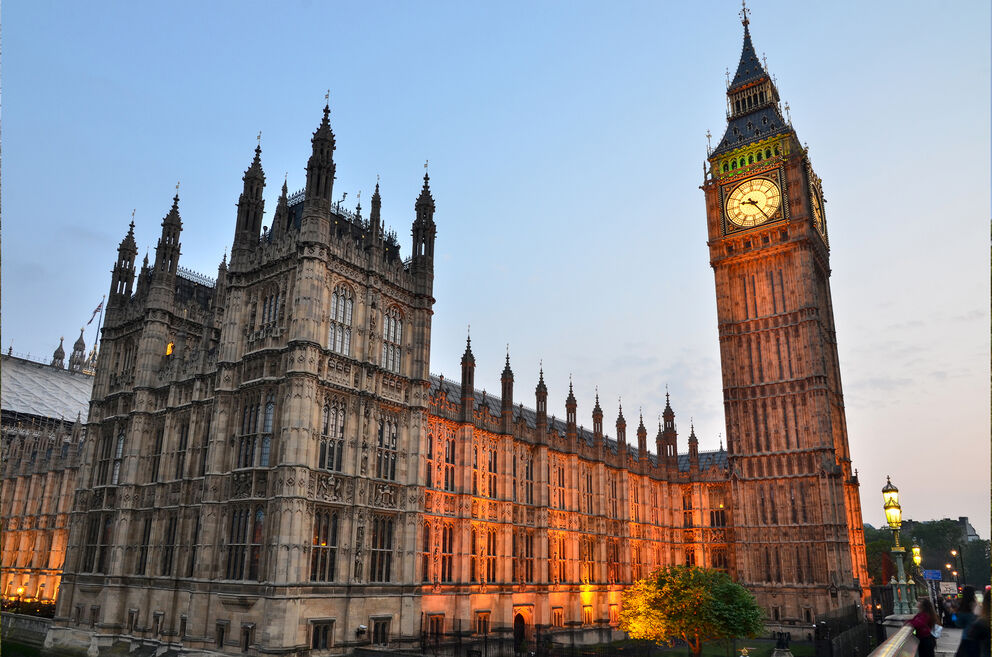The UK parliament voted last week to allow some Huawei equipment in 5G deployments despite the US issuing warnings of the threat, but how much of a risk is Huawei?
Huawei – the Chinese technology company that has been labelled a security threat by US government officials – has just been named as Europe’s most prolific filer of technology patents.

The Chinese giant filed more European patent applications than any other company last year, cementing its reputation as one of the world’s pioneering forces in technology research and development.
According to a report from the European Patent Office, Huawei filed 3,524 patent applications in 2019. This beat Korean manufacturing rivals Samsung, which filed 2,858 applications, and LG, which filed 2,817.
The figures – released last week – underpin the challenge facing government officials worldwide who are concerned about the role Huawei will play in future technology deployments.
Huawei’s research and development is already embedded in the advancement of new technologies such as 5G, which is widely expected to play a major role in the future creation and consumption of video content.
Last week, UK politicians from the ruling Conservative Party tried to stop a bill that would limit Huawei’s role in the rollout of 5G networks in the country.
During the vote on the Telecommunications Infrastructure Bill, 38 Tory MPs voted in favour of an amendment put forward by former Conservative Party leader Iain Duncan Smith which would have prevented Huawei’s involvement in 5G rollouts.
The amendment would have seen firms classified as “high-risk vendors” by the National Cyber Security Centre be banned entirely from the UK’s 5G project by 31 December 2022.
The former Tory leader said he was “genuinely concerned that this country has got itself far too bound into a process in which we are reliant on untrusted vendors”. The amendment was defeated by 24 votes.
The rebellion was the biggest faced by UK Prime Minister Boris Johnson since he won a huge majority at the UK general election in December, serving as a “warning shot” from those who oppose Huawei, according to a report in the Financial Times.
Huawei is one of the leading companies still carrying out research into 5G technology at a vital stage, when some countries are just beginning to deploy the new connectivity standard.
US vs Them
Since it was added to the US’ Banned Entity list in 2019, Huawei has ramped up productions of its own chips and components, in an attempt to lessen its dependence on external supply chains.
While, President Donald Trump last week signed the now-ratified Secure and Trusted Communications Networks Act, which means US companies cannot use federal funds to buy equipment made from Huawei or fellow Chinese vendor ZTE.
The US move is the latest in a long line of steps taken to mitigate the influence of Chinese companies on the global tech market, with the US citing cyber security concerns. US officials fear Huawei or ZTE could give Beijing access to communications infrastructure it has supplied, giving China a valuable strategic advantage – something Huawei has always strongly denied.
Huawei’s dominance in patents, however, show what a mistake cutting it out of the market entirely could be.
When it comes to 5G, Huawei is out in front. With more than 3,000 patent applications filed and more than 1,200 of these granted, it took first place in a ranking complied by IPlytics and the Technical University of Berlin.
Of note, more than half of Huawei’s patents have yet to be granted, according to Statista, who compiled the figures. In terms of the number granted, Huawei is fourth. But what this shows is that Huawei is one of the leading companies still carrying out research into 5G technology at a vital stage, when some countries are just beginning to deploy the new connectivity standard.
Huawei claims to have shipped in excess of 100,000 5G base stations globally to date, backed by more than 40 5G commercial contracts with nearly half in Europe. Carriers include China Telecom, China Mobile, and China Unicom, LG Uplus in South Korea, Three and O2 in the UK, KPN in the Netherlands, MTS the largest operator in Russia, and VIVA Bahrain, Saudi Telecom, and Etisalat in the Middle East, according to a report from Forbes into the 5G market, which cited Moor Insights & Strategy.
Trying to cut out Huawei now would, for this reason, be very challenging in a lot of markets. That’s without even assessing Huawei’s existing place in 4G infrastructure in many countries.
But the alleged “threat” (which, again, Huawei strenuously denies) is still being pushed by US officials. As recently as last month, officials told the Wall Street Journal that Huawei can make use of backdoors that have been put in place by lawful-intercept legislation. These are laws that mean law enforcement officials can legally access network information and other data as part of official investigations.
US officials claim that Huawei has had a secret capability to tap into these lawful-intercept interfaces without carriers’ knowledge, since 2009.
US national security adviser Robert O’Brien told the WSJ: “We have evidence that Huawei has the capability secretly to access sensitive and personal information in systems it maintains and sells around the world.”
UK lawmakers are hoping to manage any perceived threat by limiting the amount of Huawei kit that telecoms operators can use during 5G deployments. The Chinese vendor has also been banned from providing technology for the core of telecoms networks.
In Germany, a bill has been proposed which would allow Huawei to have full access to 5G networks, so long as it agrees to meet certain security conditions. And in Canada, Telus said it plans to use Huawei “right out of the gate” when it launches 5G later this year.
So for now, it looks like Huawei will play a key role in 5G. Yet the dispute over the Chinese vendor’s future role is still very much being debated.
You are not signed in
Only registered users can comment on this article.

SMPTE, EBU, and ETC research AI’s impact on the media
The Society of Motion Picture and Television Engineers (SMPTE) has teamed up with the European Broadcasting Union (EBU) and the Entertainment Technology Center (ETC) on a new engineering report on artificial intelligence (AI) and its effect on media.

Nigel Warner to succeed John McVay as CEO of Pact
UK producers' body Pact has named Nigel Warner, UK Policy Consultant to the Motion Picture Association and Special Counsel at Lexington, as its next CEO.

UK film and TV industry backs clean power plan
The UK film and TV industry has agreed on a plan to permanently shift to clean solutions for temporary power on sets.

Sky’s Priya Dogra to become Chief Executive of Channel 4
Priya Dogra will become the next Chief Executive of Channel 4. Currently Chief Advertising, Group Data, and New Revenue Officer at Sky, Dogra will succeed interim Jonathan Allan in March 2026.

One Battle After Another, The White Lotus, and Adolescence lead Golden Globe nominees
One Battle After Another, The White Lotus, and Adolescence have emerged as the frontrunning films and TV shows for the 2026 Golden Globes.


